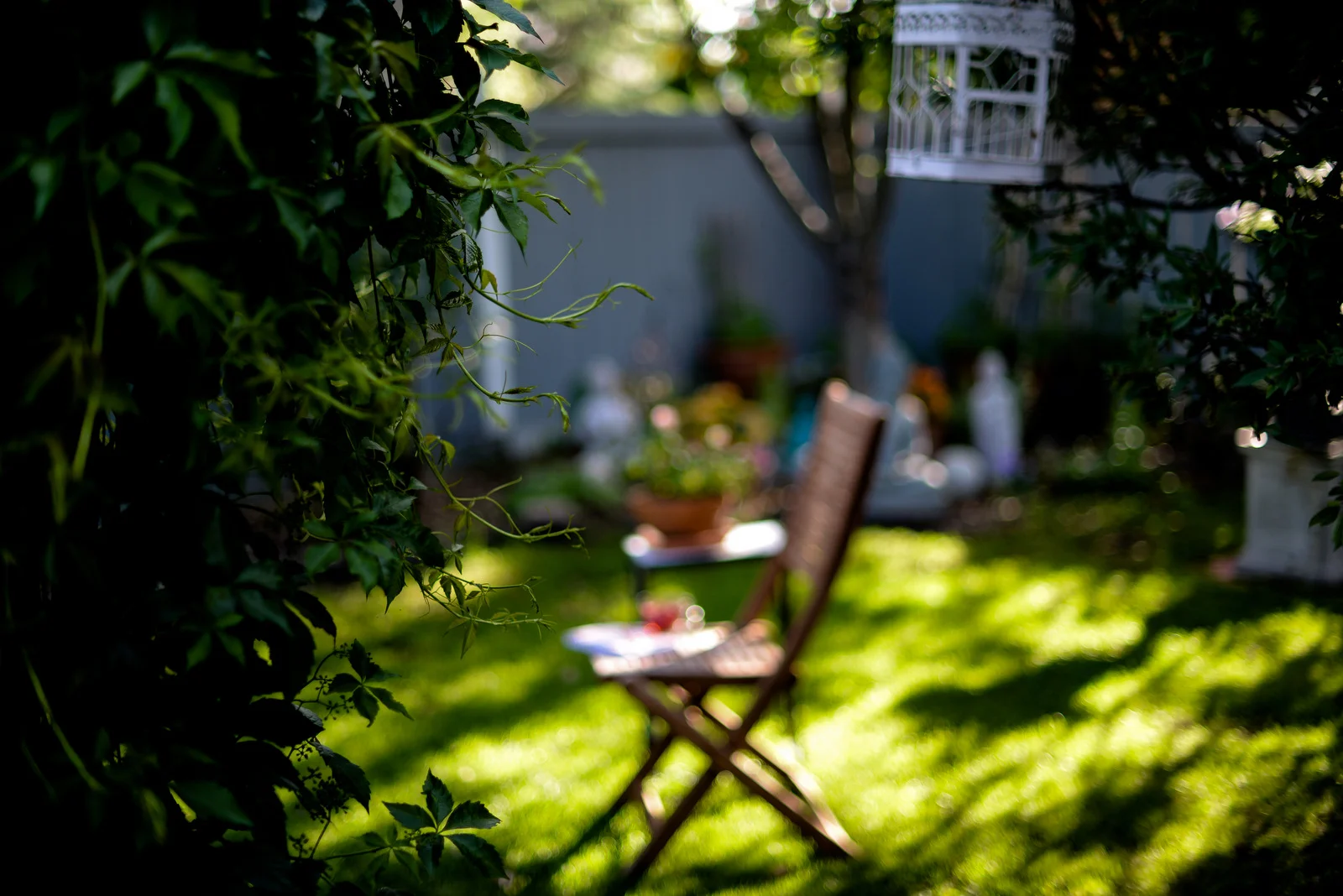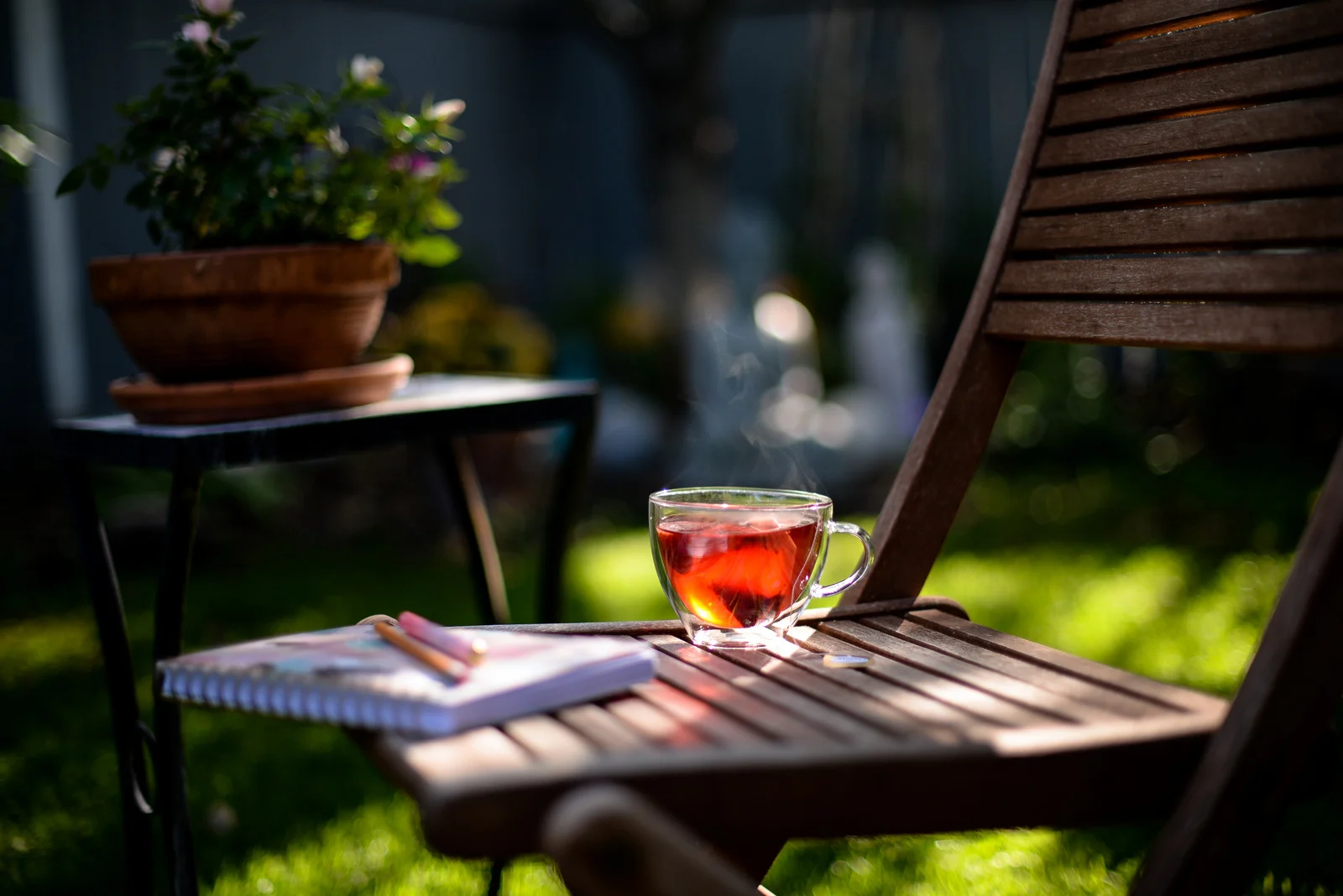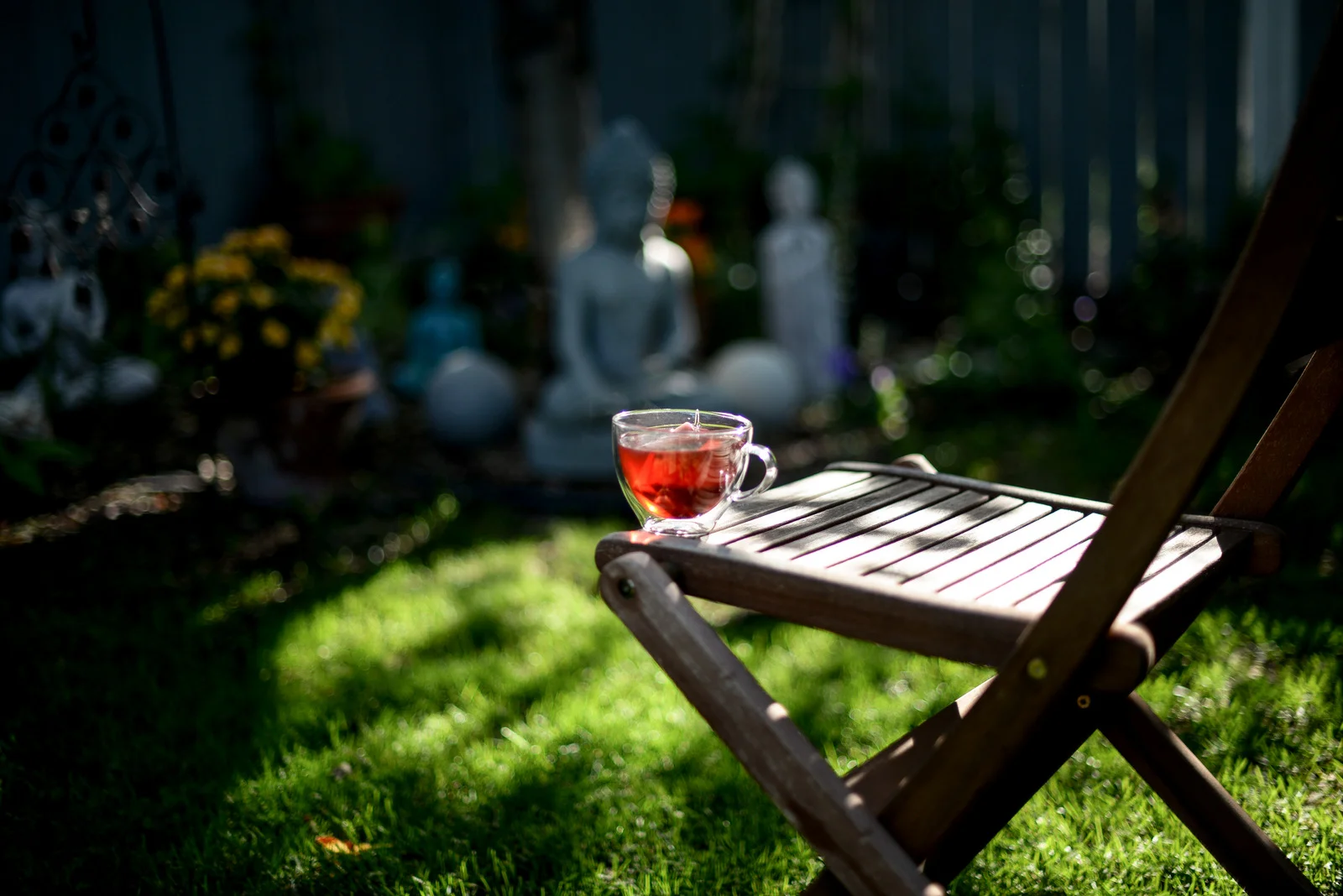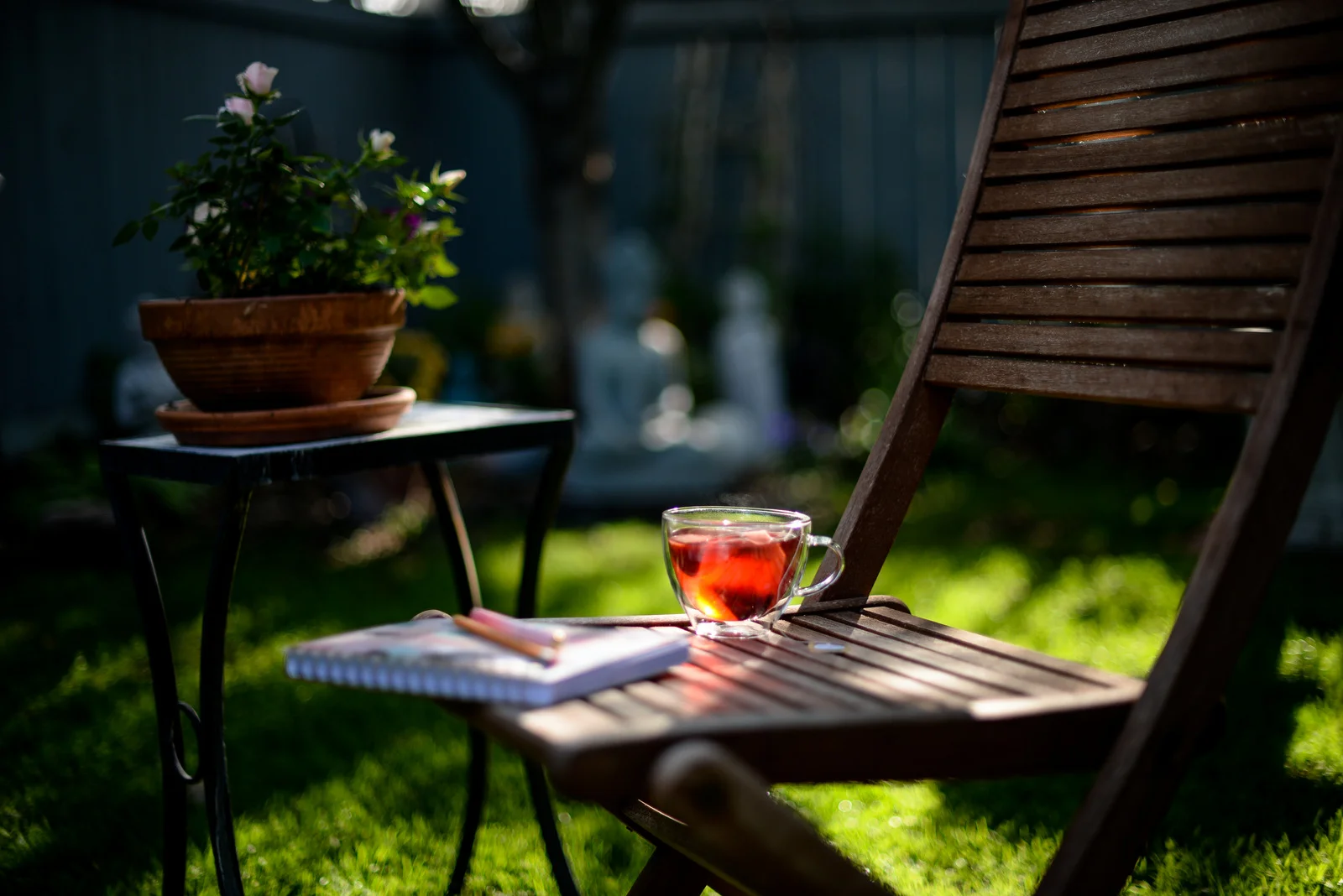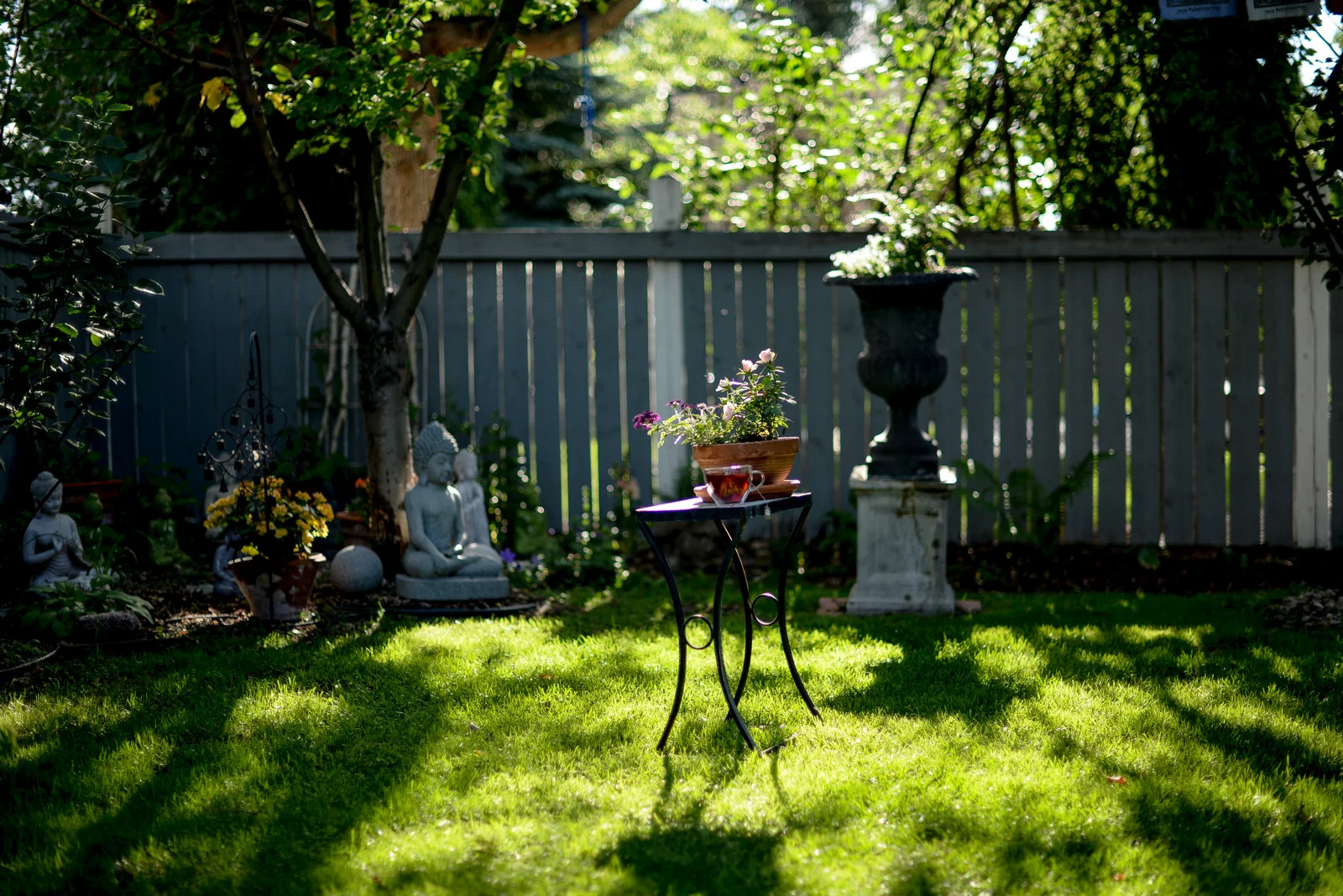Tea in the Buddha Garden
Today we shall take our tea in the little buddha garden in my backyard. We’ll read poems and sip pomegranate hibiscus tea.
First we will read Edith Södergran, and we will shine without dread:
Triumph of Existing
by Edith Södergran
What do I fear? I am a part of infinity.
I am a portion of a cosmic force,
a separate world within a million worlds,
a star of the first magnitude, the last to die.
The triumph of the living, the triumph of the breathing,
the triumph of the existing!
The triumph of feeling time flow, glacial, through my veins,
and hear the silent stream of night
and stand atop a mountain in the sun.
I walk on sun, I stand on sun,
I know nothing but the sun.
Time — transformer, time — destroyer,
time — enchanter,
do you come with new intrigues, a thousand
schemes, to offer me a life
as a little seed, as a coiled serpent, as a rock
out in the sea?
Time — you murderer — begone from me!
The sun fills up my breast with lovely honey to
the brim
and she says: some day, all stars are bound to die,
yet they always shine without dread.
And next, a poem about happiness, and about a beautiful garden, and about bragging, and consolation. You read a few lines, and then I’ll read a few.
Happiness
by Paisley Rekdal
I have been taught never to brag but now
I cannot help it: I keep
a beautiful garden, all abundance,
indiscriminate, pulling itself
from the stubborn earth: does it offend you
to watch me working in it,
touching my hands to the greening tips or
tearing the yellow stalks back, so wild
the living and the dead both
snap off in my hands?
The neighbor with his stuttering
fingers, the neighbor with his broken
love: each comes up my drive
to receive his pitying,
accustomed consolations, watches me
work in silence awhile, rises in anger,
walks back. Does it offend them to watch me
not mourning with them but working
fitfully, fruitlessly, working
the way the bees work, which is to say
by instinct alone, which looks like pleasure?
I can stand for hours among the sweet
narcissus, silent as a point of bone.
I can wait longer than sadness. I can wait longer
than your grief. It is such a small thing
to be proud of, a garden. Today
there were scrub jays, quail,
a woodpecker knocking at the white-
and-black shapes of trees, and someone’s lost rabbit
scratching under the barberry: is it
indiscriminate? Should it shrink back, wither,
and expurgate? Should I, too, not be loved?
It is only a little time, a little space.
Why not watch the grasses take up their colors in a rush
like a stream of kerosene being lit?
If I could not have made this garden beautiful
I wouldn’t understand your suffering,
nor care for each the same, inflamed way.
I would have to stay only like the bees,
beyond consciousness, beyond
self-reproach, fingers dug down hard
into stone, and growing nothing.
There is no end to ego,
with its museum of disappointments.
I want to take my neighbors into the garden
and show them: Here is consolation.
Here is your pity. Look how much seed it drops
around the sparrows as they fight.
It lives alongside their misery.
It glows each evening with a violent light.
{source}
So let’s be proud of our gardens, however weed-filled, however imperfect, overgrown, ill-conceived. Because a garden will spring up beside misery, beside sadness, beside hatred. A garden will offer anyone consolation. A garden will bring peace.
A garden, too, is a triumph, a green sliver of the cosmic force.
A garden is not everything, but it is something small and tenacious and beautiful.

